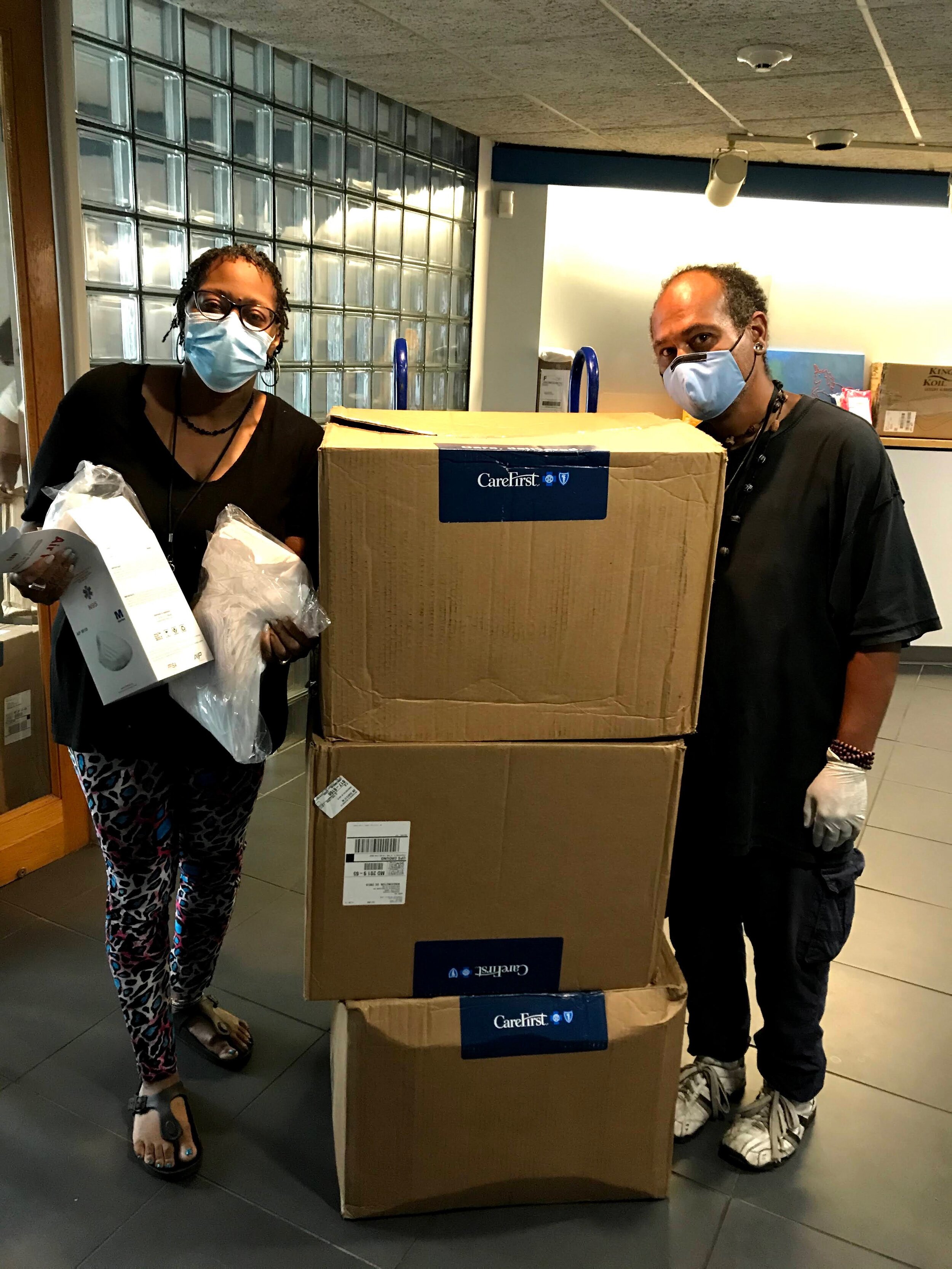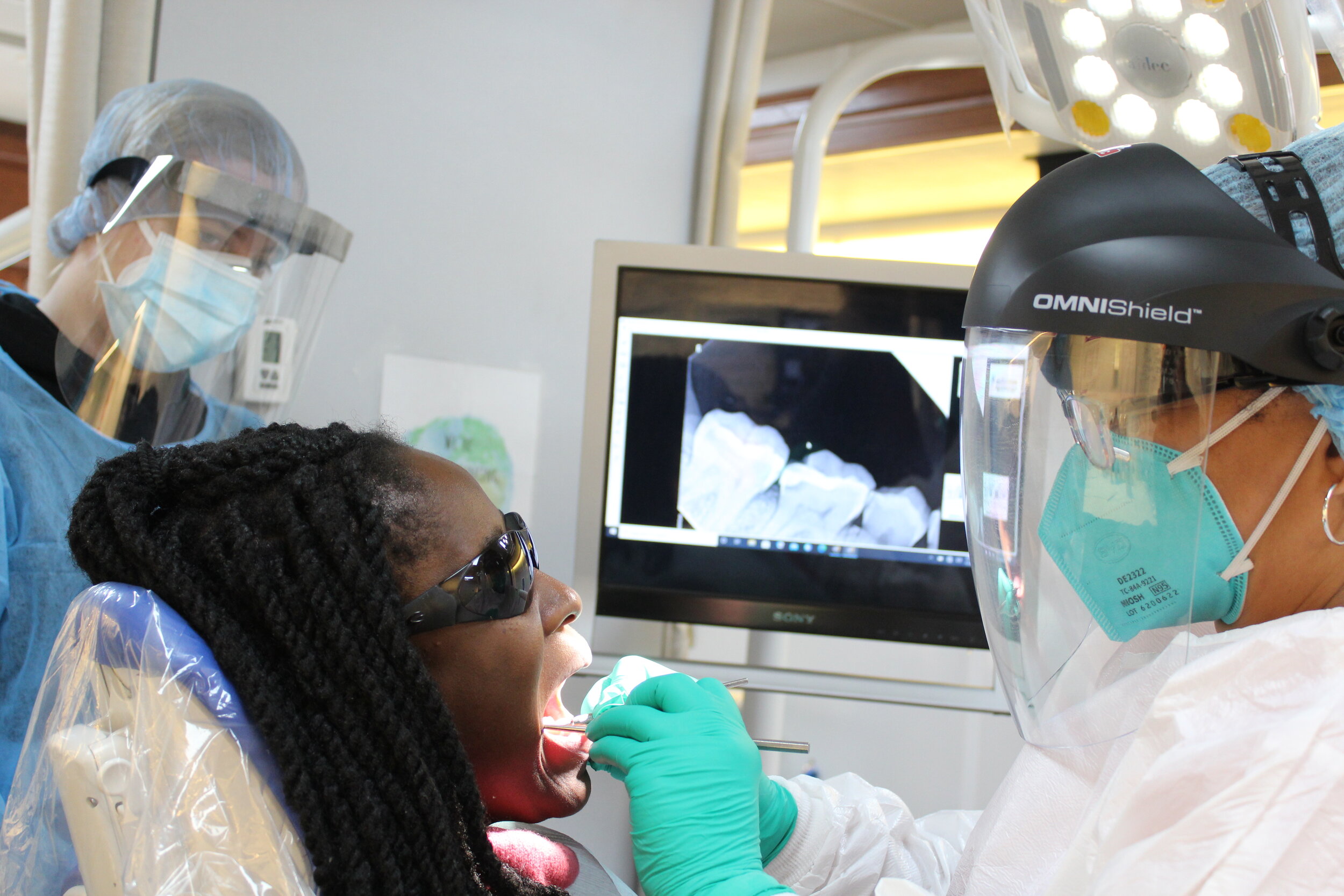$100,000 in funds awarded to actionable ideas aimed to benefit Greater Washington neighborhoods and the public good
Washington, DC – February 11, 2021 – The Greater Washington Community Foundation is pleased to announce the full slate of community projects selected to receive Community Action Awards, presented by Comcast—cash awards up to $2,000 to help residents take action to make their communities safer, stronger, and more dynamic. In all, $100,000 was awarded to 50 projects working to make our region a more equitable and inclusive place for everyone to live, work, and thrive.
The Community Action Awards, presented by Comcast, are part of VoicesDMV, a powerful community engagement initiative launched in 2017 to explore the region’s challenges and opportunities related to housing, transportation, safety, economic security, race relations, and community well-being. VoicesDMV celebrates and intentionally listens to the voices of those in our community that often go unheard. To learn more about the initiative, visit voicesdmv.org.
In 2020, VoicesDMV tapped into Community Insights through a regional survey captured in the weeks immediately preceding the COVID-19 crisis. Even before the pandemic, the survey found that our Black and African American neighbors were experiencing economic inequality and expressing deep concerns about access to quality education, jobs, and medical care. View the findings here.
On the Table then brought together thousands of DMV residents for virtual community conversations to engage in meaningful dialogue around the challenges presented by the survey findings, to work to develop solutions together, and to inspire action to make a difference in our communities.
Finally, the Community Action Awards program, presented by Comcast, is providing support to help participants move ideas discussed at the table into action. These awards are intended to support neighborhood-based projects and individual leaders who may encounter challenges in accessing traditional foundation funding.
“VoicesDMV presents a powerful platform to engage residents to do good for their communities — in fact, 90 percent of On the Table survey respondents said they were likely to take action on an issue discussed at their conversation,” said Benton Murphy, Senior Advisor for Impact at the Greater Washington Community Foundation. “The Community Action Awards were designed to support these ideas and help community members to take action to better their communities. We are looking forward to seeing these projects come to life in communities across the region.”
Selected projects come from across the Washington, DC metro area – including DC, Montgomery and Prince George’s counties in Maryland, and Northern Virginia. The projects address a wide range of issues, including education and youth development, community engagement, health and wellness, arts and culture, food access and more. All projects receiving awards can be viewed here.
Over 200 individuals and nonprofit organizations submitted ideas through an online application with the option to share a two-minute video clip describing their project. A team of Community Foundation staff and individuals representing a variety of backgrounds, neighborhoods, and expertise evaluated the entries. Winners were selected based on creativity of idea, level of community engagement, and potential impact of the project.
Community Action Award Winners
Action Research for Community Change, a partnership between American University’s Community-Based Research Scholars and E.L. Haynes Public Charter School to facilitate an Action Research 101 class for students and pilot a student-led action research project on a community issue important to them.
Advancing Equity and Inclusion through Entrepreneurship, SEEK SPOT’s 2-Day Launch Camp, to support 10 DC-area entrepreneurs to accelerate business ideas that solve local problems.
Kids in COVID Book Project, from Bee the Change, to support an opportunity for Montgomery Country children to reflect and write on their experience during the pandemic.
Baños de Bosque and Defensores de la Cuenca to engage Spanish-speaking immigrant communities in “forest bathing,” a form of therapy that uses nature to teach mindfulness.
Black on the Block, a collaboration between Creative Suitland Arts Center and Joe’s Movement Emporium, to support a Black wellness festival offering health and business booths, workshops, and performances by local artists.
Black Chamber Business Tour, an initiative of the PFC Black Chamber, to host a socially distant, caravan-style tour to provide exposure and increase visibility of 10 Black owned businesses in Prince George’s County.
The Book Club for Kids to support expansion of its podcast program into Anacostia schools.
Brighter Bites to purchase food for its produce boxes that help underserved families gain access to healthy foods.
Brightwood Park Unity Mural, a project commissioned by Uptown Main Street, to support creation of a mural that fosters unity, inclusion, neighborhood peace, and youth involvement in the Brightwood Park neighborhood of DC.
Briya Voices for All, a program of Briya Public Charter School, to support student-led advocacy efforts in 2021.
B-Roll Media & Arts to help transition its teaching model to online learning and virtual classes.
Helping Older Adults Weather the COVID Winter through Walking from Capitol Hill Village to create and promote a Year-Round Walking Program designed to bring neighbors together, reduce social isolation, increase social support, and encourage physical activity.
Civic Saturday Prince George’s County, part of Civic University, to create a program aimed to increase civic engagement in local communities.
The Coming Home Coop to offer stipends to local business owners for participation in its workshop program.
Dance Place Accessibility Project to expand Dance Place’s accessibility of its programming and facilities to people with disabilities.
DC South Asian Food Walking Tour, an initiative of South Asian Rapid Response Initiative (SARRI), to create a walking tour that highlights Asian immigrant restaurant owners.
DC KinCare Alliance Relative Caregiver Community Board Outreach and Education Project, a DC KinCare Alliance project, to develop an oral history video focused on the everyday life experiences of relative caregivers who’ve stepped up to raise DC's at-risk children in times of crisis.
Empowered Healing, an initiative of Support Hopeful Youth (SHY), to host three mental health workshops for unstably housed youth in DC.
Fill the Fridge to offer nutritious meals to underserved communities by purchasing, installing, and filling refrigerators in area schools, libraries, and departments of recreation.
FreeState to support the second edition of its Maryland LGBTQIA+ community needs assessment.
Fort Dupont Park Clean-Up Project, an initiative of Friends of Fort Dupont Ice Arena, to offer positive youth development opportunities during the pandemic.
Food Landscape Photovoice, a collaboration between Healthy Eating Active Living (HEAL) and the Prince George’s County Food Equity Council (FEC), to capture personal stories from community members about their food environments to communicate their needs and potential solutions.
Franciscan Monastery Garden Guild to purchase farming materials for its urban farm that grows and distributes fresh food to area food banks.
Got You Covered Diaper Bag Project, a program of Seed of Faith, to distribute diapers, clothing, and other essentials to economically disadvantaged new parents.
Health and Hope on Wheels, a program by Rainbow Community Development Center, to hire unemployed drivers to pick up donations for its partner agencies.
Impacto LGBT, a Spanish-language mental health program for persons living with HIV, to expand its bilingual services of LGBT Latinx gay men.
Invest in the Future, a program by Youth for You, to support a 12-month, academic and college and career readiness program for underserved students in the DC area.
Kinder(Garden), a program of the Community Educational Research Group, to purchase garden materials and supplies for a youth gardening project with instruction on healthy eating habits and environmental stewardship.
Live It Learn It to provide two 5th grade classes at Drew Elementary School with access to fun, engaging, hands-on lessons and experiences, such as Sheroes, a social studies lesson focused on women in history and activism.
Mamas Together Mutual Aid Community Survey Project, an initiative of Mothers Outreach Network, to conduct a digital survey to create awareness and measure the need for a food and supplies bank for the most marginalized moms of several neighborhoods in dire need.
Maple Avenue Parent Support Group, part of Community Health and Empowerment in the Takoma Park and Long Branch neighborhoods, to create a new weekly parent support group for immigrant families with elementary school age children.
Neighbors Helping Neighbors, a program of Just Neighbors, to provide stipends to former clients to continue engagement around discussing, advocating, and volunteering on issues that will help make their community a more welcoming place for immigrants.
No Safe Place to Call Home, a collaborative reporting project that would give one of Street Sense Media’s formerly homeless vendor-writers the chance to produce an investigative story about his experience in partnership with a seasoned professional journalist.
Overcoming Gentrification in Chinatown to support AALEAD's Youth Council, a group of high and middle-school AAPI youth who advocate for diversity and racial equity concerns in their own lives and their community, to raise awareness of gentrification concerns and give a voice to Chinese residents of DC’s Chinatown neighborhood.
Potomac Triangle Parks Project, part of the volunteer-run nonprofit Guerilla Gardeners of Washington, DC, to help the residents of Potomac Gardens and Hopkins to reclaim two adjacent public parks from disuse and neglect.
Raising Las Voces to involve Prince George's County Youth Poet Ambassadors in creating a series of posters to promote and foster awareness of various issues affecting the Latinx community and how to access related resources.
School Supplies for Students from the Sequoyah Elementary School PTA to prepare and distribute school supply boxes to support the physical, material, and social-emotional needs of students during distance learning.
Sewing Academy for Latina Women, a partnership between IMPACT Silver Spring and local Latina residents, to launch a 20-week sewing academy for 25 Latina women.
Sonn Cosita Seria’s Langley Park Project to support a collective music workshop program that teaches and promotes Son Jarocho music in the DC area.
Surviving a Global Pandemic: Recipes from ROC-DC to help print, publish, and distribute a cookbook that aims to build, strengthen, and maintain community across cultures and languages during the Covid-19 pandemic.
Takoma Education Campus Community Garden, led by the TEC Parent Teacher Organization, to rehabilitate and expand an unused garden space to bring freshly grown, nutritious vegetables to the local community.
Total Wellness to support its Bold Beautiful Brilliant Girls Empowerment Group by offering yoga supplies and online yoga classes that help middle school girls take better care of their minds and bodies.
Ward 3 Mutual Aid, a volunteer-run network of neighbors, to provide groceries, cleaning products and household supplies directly to neighbors affected by the Covid-19 pandemic.
Wellness Together project at Thomas G Pullen Creative Arts Academy to create a wellness initiative for students in grades 3-5 with a twice weekly virtual afterschool program including yoga, meditation, and art therapy.
Wheels for Women, a partnership between Lyft and the Brem Foundation, to offer cost-free ride-sharing service to breast screenings and diagnostic appointments for women in need.
Woks for Washington COVID-19 Meal Donation Project and Players Philanthropy Fund to purchase meals from local Asian restaurants and donate those meals to local homeless shelters and medical staff.
Young Royalty, a program of Royalty LLC, to offer daily and menstrual hygiene products and self-esteem workshops to young ladies 12-17 years of age.
Young, Black & Working from Home Community and Young, Black & Giving Back Institute to support an online community of Black nonprofit professionals to share ideas, network, dialogue, and have a space to experience Black joy despite current societal crises.
Youth in Support of Police Reform, a project of Prince George’s People’s Coalition, to educate high school youth on the Maryland state legislative process and support their advocacy efforts around police reform legislation.
ZOOM PALS to support greater social connection for those aging in place in Hyattsville, Maryland by offering technology training taught by youth and high school students.




























